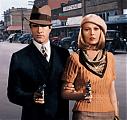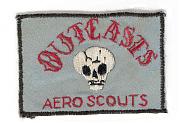Although I don't care for his often neo-con like thinking, Boot has some valid points (in my opinion of course) in this one:
Ed. by SWC Admin - LA Times link, unfortunately requires a sign up to view.Los Angeles Times
May 31, 2007
Fire The Incompetents, Find The Pattons
Our armed forces need to do a better job of punishing failure while rewarding those who succeed on the battlefield.
By Max Boot
THE NAVY IS ON a tear. Last week, for the sixth time in six weeks, a skipper was relieved of command. The latest to get the sack was Cmdr. E.J. McClure of the guided missile destroyer Arleigh Burke, which had a "soft grounding" while heading back to port in the well-charted waters off Norfolk, Va.
These firings have sparked debate in military circles, with some critics from the other services charging that the Navy is guilty of a "zero defect" mentality that would have robbed it of such distinguished leaders as Adm. Chester Nimitz, the World War II hero who grounded his first command in 1908. But even if the Navy is going, so to speak, overboard, there is a good case to be made that the ground-combat arms go too far in the other direction by not holding their commanders responsible for a lack of results.
This was the essence of a complaint made recently by Army Lt. Col. Paul Yingling, who wrote in the Armed Forces Journal that "a private who loses a rifle suffers far greater consequences than a general who loses a war."















Bookmarks